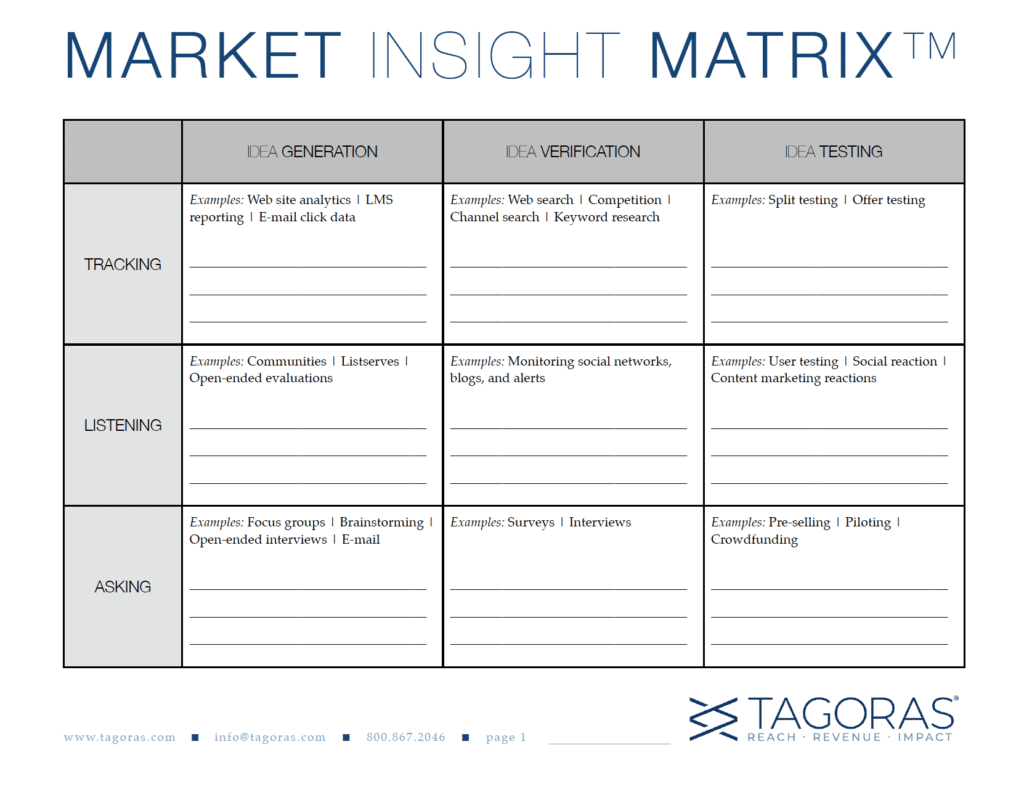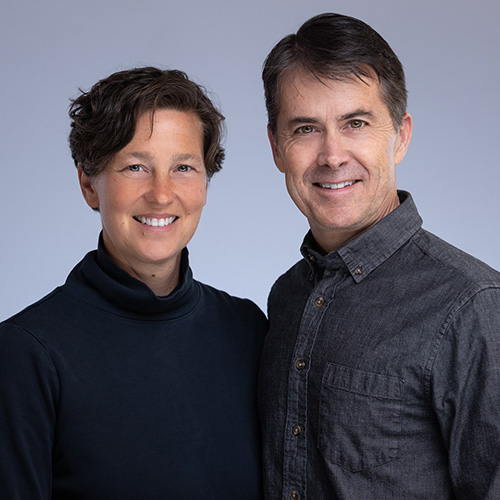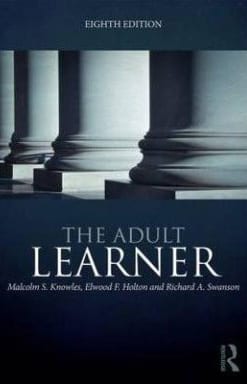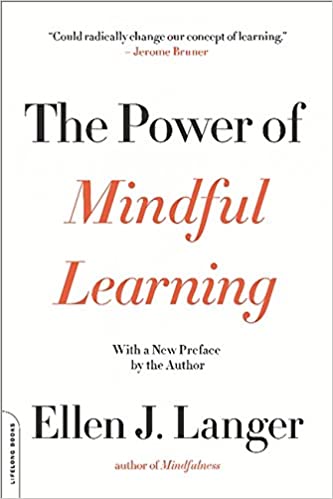If we had to pick just one thing as the key to the success of a learning business, we would argue for the learning experiences offered because those learning experiences are at the core of what learning businesses do.
In order to offer effective learning experiences, we need a solid understanding of adult learning theory. Although many learning business professionals are already familiar with adult learning theory, there can be tremendous value in taking time to periodically revisit it.
In this redux episode of the Leading Learning Podcast, co-hosts Celisa Steele and Jeff Cobb examine three principles of adult learning theory and the implications each has on designing, developing, and delivering meaningful learning experiences.
To tune in, listen below. To make sure you catch all future episodes, be sure to subscribe via RSS, Apple Podcasts, Spotify, Stitcher Radio, iHeartRadio, PodBean, or any podcatcher service you may use (e.g., Overcast). And, if you like the podcast, be sure to give it a tweet.
Listen to the Show
Access the Transcript
Download a PDF transcript of this episode’s audio.
Read the Show Notes
Intro: [00:00:00]
Celisa Steele: [00:01:39] Jeff, if you had to pick just one thing as the crux of the success of a learning business, what would that one thing be?
Jeff Cobb: [00:01:48] Well, I think I’d go with the learning experiences—the products and services actually offered.
Celisa Steele: [00:01:54] Yes, I think I would too. I think the learning experiences that learning businesses design, develop, and deliver are the crux. They’re the essence of what those learning businesses do. Not that great learning experiences are enough alone, but they are a really important and fine starting point.
Jeff Cobb: [00:02:13] Right. There are definitely other aspects that are important, and we’ve mentioned what we see as the other key domains: strategy, leadership, marketing, and capacity—those are part of our Learning Business Maturity Model. But the learning experiences, or the portfolio as we call it in the maturity model, are just undeniably critical.
Celisa Steele: [00:02:33] Given that, it seems high time that we dedicate an episode of the Leading Learning Podcast to adult learning theory because, to design, develop, and deliver meaningful, effective learning experiences, we have to understand adult learning theory.
Jeff Cobb: [00:02:50] Of course, we know that, for many of our listeners, adult learning theory is nothing new. But we’ve found it helpful to periodically revisit the principles of adult learning and revisit them particularly with an eye to how those principles apply to the decisions that we make about our products and services.
The Six Principles of Adult Learning Theory
Celisa Steele: [00:03:08] Right. So let’s jump in, and let’s start by covering the six main points of adult learning theory.
Jeff Cobb: [00:03:16] But, before we get to those six points, we should say a bit about their source. The six points that we’ll get to come from the work of Malcolm Knowles. Knowles was born in 1913 and died in 1997. He’s very often called the father of andragogy. Pedagogy, which is a more common term, deals with teaching children, and andragogy is a continuation or extension of pedagogy, and it deals with adult learning. And then, in 1973, Knowles published The Adult Learner, which is really a classic in the field of adult learning.
Celisa Steele: [00:03:55] Thanks, Jeff. Giving Knowles a mention and his due credit in an episode about adult learning theory is definitely good and proper. In The Adult Learner, that book that you just mentioned, Knowles outlines six main points about adult learning. First is the need to know, meaning adults need to know why they need to learn something. The second point deals with the learner’s self-concept. Adult learners expect to be responsible for their own decisions. And, third, the learner’s experiences play an important role—so what adult learners know and have done already impacts how they learn.
Jeff Cobb: [00:04:34] So those are the first three points. And then the remaining three are readiness to learn—adults become ready to learn when they need to know or do something in their lives. Now that’s number four. Number five is orientation to learning. Adults are life-centered—or you could say task- or problem-centered—rather than subject- or topic-centered. And then, six, finally, motivation—internal motivators are more effective than external ones with adult learners. In fact, that’s true of all learners, probably.
Celisa Steele: [00:05:08] Those are the six points. What we’re going to do during the rest of this episode is unpack the first three points and look at their implications—that is, how learning businesses might use those points to guide the design, development, and delivery of their learning products and services for adult learners.
Jeff Cobb: [00:05:26] We’ll note that we do, in fact, cover all six principles in depth in “An Essential Guide to Andragogy for Learning Businesses,” which is a post on our site. We thought that covering all six today would make for a long episode. So, like Celisa said, we’ll discuss just the first three.
Leading Learning Newsletter
[00:05:51] As someone who listens to the Leading Learning Podcast, you should know about the Leading Learning newsletter.
The newsletter is inbox intelligence for learning businesses and helps you understand the latest technology, marketing, and learning trends and grow your learning business. Best of all, it’s a free resource. As a subscriber, you’ll get Leading Links, our monthly curated collection of resources to help you grow the reach, revenue, and impact of your learning business; the podcast digest, a monthly summary of podcast episodes released during the previous month; plus periodic announcements highlighting Leading Learning Webinars and other educational opportunities designed to benefit learning business professionals.
The Need to Know: Adult Learners Need to Know Why
Jeff Cobb: [00:06:52] And now let’s move on to some analysis of the first point of adult learning theory: the need to know.
Celisa Steele: [00:06:59] Knowles asserted that “Adults need to know why they need to learn something before undertaking to learn it.” That’s a quote from The Adult Learner book. I think that a lot of listeners might have heard this principle phrased as “What’s in it for me?”
Jeff Cobb: [00:07:18] The old WIIFM. Sometimes I boil it down to just start with “why.” This “why” point seems obvious. But, too often, at least in my experience, this principle is skipped over or only partially embraced.
Celisa Steele: [00:07:32] I’d say in my experience too.
Jeff Cobb: [00:07:33] There you go. Letting this point guide you means beginning, as you might expect from us, with your marketing. That means not promotion only but a marketing approach that encompasses all four Ps. If you’re unsure of what the other Ps are, besides promotion, luckily for you, Celisa and I focused a podcast episode on the four Ps.
Celisa Steele: [00:08:10] Embracing this point also begins with doing the tracking, listening, and asking that’s necessary to understand what your learners need to know.
If you’re doing that homework to discover the learners’ needs up front, then the learning experiences you create will be grounded in this first point—adult learners need to know why they need to learn, whatever the topic or skill at hand is.
Celisa Steele
Jeff Cobb: [00:08:38] And we have a framework called the Market Insight Matrix that will help you structure your tracking, your listening, and asking efforts in a way that’s sustainable over the long haul.

Celisa Steele: [00:08:57] And so, once you answer the “why” and therefore you have some assurance that you’re making the right products and services, you’re still not done at this point about adult learners needing to know why. You also have to communicate the “why” to the learners. As you deliver a learning experience, you want to overtly tie the content or skills you’re teaching back to the outcomes and positive change that you know the learners are looking for.
Jeff Cobb: [00:09:26] That’s exactly right. To help you do that as you design and develop a learning experience and the promotions for it, you want to ask questions like “What are the outcomes learners will be able to achieve based on this learning experience?” “What positive change will we help them create?” And then you communicate those answers to the learners in the promotions that will hopefully convince them to sign up and then, of course, during the learning experience itself.
Celisa Steele: [00:09:53] Probably even more importantly, you want to help learners make such connections for themselves because they’re going to be better able than you are to make the “why” of any learning experience more meaningful and specific to them. You just need to encourage them and give them the cognitive space to make those connections. So what do I mean by cognitive space and encouragement? Those might take the shape of simple reflection questions. Just asking, for example, “What are your biggest challenges with pricing?” That happens to be something, Jeff, that you and I asked before and during a recent Webinar that we held on pricing educational products.
Jeff Cobb: [00:10:36] And if you ask reflection questions like that, it’s really important to give the learners some quiet time to think and jot down notes or an opportunity to share in pairs or small groups. Sometimes silence scares facilitators and instructors, we’ve found. But it’s actually a really powerful tool in learning.
Celisa Steele: [00:10:57] Yes, absolutely. A little silence is key. If you actually want people to do something like reflecting or taking notes, it’s really, really hard for someone to think while a presenter is still talking. You can also take a more scaffolded approach to connecting the learning to the “why.” And so, to do that, you might draw on real-world examples or more formal case studies that show how a concept has played out for an individual or an organization.
Jeff Cobb: [00:11:26] There’s a quotation from Ellen Langer’s excellent book The Power of Mindful Learning that I think applies here. Langer wrote, “There are two ways a teacher can make facts or ideas seem personally important. The most common approach is to shape or interpret ideas so that their relation to the lives, interests, and curiosity of the majority of the students is readily apparent. And when critics of education clamor for relevance, they’re usually speaking of this sort of relevance. The second approach is to change students’ attitudes toward the material, that is, to teach students to make the material meaningful to themselves.”
Celisa Steele: [00:12:06] I think that quotation perfectly sums up this idea that there’s both work we can do to call out the connection to life and work about the learning but then also helping our learners make those connections for themselves. Jeff, I know you had the good fortune of speaking to Ellen Langer for the podcast. And so, with that, we’ll conclude our look at that first point, adults need to know why they need to learn something.
Self-Concept: Adult Learners Expect to Be Responsible
Celisa Steele: [00:12:46] We can move on to the second point. Here’s how Knowles explained this second point. This is a somewhat lengthy quotation from his book The Adult Learner again. He writes, “Adults have a self-concept of being responsible for their own decisions, for their own lives. They resent and resist situations in which they feel others are imposing their wills on them. This presents a serious problem in adult education. The minute adults walk into an activity labeled education, training, or anything synonymous, they hark back to their conditioning in their previous school experience, put on their dunce hats of dependency, fold their arms, sit back, and say, ‘Teach me.’”
Jeff Cobb: [00:13:29] I just have to say that dunce hats of dependency is a wonderful image.
Celisa Steele: [00:13:35] Even if it’s completely undesirable, though.
Jeff Cobb: [00:13:38] It’s definitely not what we’re hoping for, though we see it far too often. Knowles pointed to a huge problem that we face as learning businesses. Sometimes our learners are just flat-out resistant, whether consciously or unconsciously. They expect to be treated as dependents because that’s what they got used to in their education early on, and then they sit and wait to be spoon-fed.
Celisa Steele: [00:14:03] Right. It’s true that many adult learners don’t expect to be asked to be full participants in learning experiences. And that has at least two implications. First, adult learners don’t necessarily come to learning experiences knowing how to be active, self-directed learners. In fact, two years after The Adult Learner first came out, Knowles published a book called Self-Directed Learning: A Guide for Learners and Teachers. This was a practical primer that he authored to help fill that knowledge gap, to help show learners how to direct their own learning, and to help show teachers how to support learners’ self-direction.
Jeff Cobb: [00:14:46] That book tends to be much less well-known than The Adult Learner, but, for listeners who aren’t familiar with it, I definitely highly recommend checking out Self-Directed Learning. A second implication here is that learner engagement among adults can really suffer, which is why we see so much attention on engagement and engagement tactics. We hear about that all the time. To address both these implications—that our adult learners don’t necessarily expect to be full participants and that, even when they are willing, they don’t necessarily know how to participate fully how to direct their own learning—choice becomes really critical.
Celisa Steele: [00:15:28] Being responsible implies making choices. It’s really important for us to offer options in how learners can engage with our content. That may mean offering the same content in different formats. Maybe having an audio, a video, and a text option for each of the major points in a learning experience.
Jeff Cobb: [00:15:51] Or it could mean offering different ways of interacting with the content—say, offering a self-paced course and a synchronous course, just for an easy example. Or it might mean providing additional resources and readings or an online community or listserv so the learners can decide how deep to go on a topic or, frankly, just opt to remain shallow if that’s what works for them at the time. So it’s important that learning businesses think about what choices they can provide learners—and then provide them.
Celisa Steele: [00:16:22] Above and beyond what can be done for a slice of content or a particular course, a learning business could opt to look at overarching resources that will support their customers in becoming effective self-directed learners. At the less scaffolded end of the spectrum, you might point your learners to resources like that Self-Directed Learning book by Knowles that we just mentioned, or, Jeff, you have a book, 10 Ways to Be a Better Learner. Then, at the more highly scaffolded end, I could imagine a learning business creating a service to help learners identify their personal needs and then create an individualized learning plan.
Jeff Cobb: [00:17:06]
The more your learners are able to connect their own answer to “Why learn this?” to the learning experience, the more they’re going to value that learning experience.
Jeff Cobb
In that sense, self-directed learning ties to the work of behavioral economists, like Dan Ariely, for instance, who described the phenomenon that labor enhances affection for its results. He described that as the IKEA effect. Of course, folks may be familiar that IKEA sells a lot of some-assembly-required products, and they’ve been very successful at it really because they are some-assembly-required.
Celisa Steele: [00:17:45] So I think IKEA, Ariely, and Knowles are all getting at the same principle. We value what we have a hand in and what we’re responsible for, whether that’s a chair or a bookshelf that we put together ourselves or it’s an aha moment that we have in a workshop about how we can apply the concept to the work and the tasks that we’re responsible for. All of that is deeply satisfying.
Jeff Cobb: [00:18:10] So let’s call that a wrap on point two, that adult learners expect to be responsible. Let’s move on to the third and final point that we’re going to cover today.
Experience: What Adult Learners Know Already Impacts How They Learn
Celisa Steele: [00:18:28] Now on to that third point of adult learning theory, which deals with experience. Actually, learners of all ages bring their past experience to any situation, and that experience then determines what and how they learn. But, adults, simply by virtue of being older than children, bring more years of experience.
Jeff Cobb: [00:18:50] Yes. It’s not only a question of the quantity of experience increasing with age, variance increases too. The standards in the U.S. public school system exist to ensure, at least, in theory, that, for example, my second-grader finishes the year with a common set of skills and knowledge that’s going to be shared by second-graders in other schools. With adult learners, it’s much harder to know what skills and knowledge will be mutual. Knowles wrote, “Any group of adults will be more heterogeneous in terms of background, learning style, motivation, needs, interests, and goals than is true of a group of youths.”
Celisa Steele: [00:19:31] This is an issue of prior knowledge, and it poses, I think, both a problem and an opportunity. The problem is that we, as providers of learning, have to do the work to make sure we position learning experiences appropriately. That’s going to help adult learners know which of our offerings are a fit for them. That might mean labeling offerings as intended for novices, as intended for those with intermediate knowledge and skills, or labeling them as for experts. It might also mean making use of pre-assessments and prerequisites. It could also mean assigning pre-work so that all learners come to a particular course, seminar, or workshop with some shared baseline knowledge.
Jeff Cobb: [00:20:18] We’ve done that with some of our events, putting out a list or a handful of books and articles—what we call our emphatically recommended readings—and then encouraging registrants to read them before showing up. We did that with the express goal of doing some level setting, of trying to make sure that diverse groups of learners have some shared concepts, some shared vocabulary, and examples.
Celisa Steele: [00:20:45] So those are things we can do before a learning experience. Once learners are at or otherwise engaged in a learning experience, having hopefully picked the one appropriate for their prior knowledge, then we need to work to draw out their experience and expertise. I’m going to quote Knowles again. He writes, “For any kind of learning, the richest resources for learning reside in the adult learners themselves.” And, note, he doesn’t just say good resources, but “the richest resources for learning.”
Jeff Cobb: [00:21:19] Experiential techniques like group discussion, case-based and problem-based activities, simulations, and hands-on practice can elicit learners’ prior knowledge exponentially better than transmittal techniques like lecture and presentation. Transmittal techniques tend to let folks sit back, cross their arms, and say, “Teach me,” which, as we’ve already discussed, isn’t nearly as effective.
Celisa Steele: [00:21:48] I think sometimes we, as learning businesses, can get caught up in the desire to look like we have all the answers, even if we don’t. But that’s really a mistake. We need to not be afraid to acknowledge the expertise resident in our learners. We need to give our learners opportunities to share their experiences and to draw on those experiences as they engage in our products and services.
Jeff Cobb: [00:22:13] Peer learning is another great option for drawing out the experience and expertise of learners. There’s the potential for one learner’s experience to directly help another learner, and there’s the potential for a learner’s experience to help her learn better herself through elaboration, one of the learning strategies that was showcased in Make It Stick: The Science of Successful Learning. Relating material to what you know already is a common approach to elaboration. So drawing on our learners’ experiences represents a great opportunity, and not drawing on them really represents a danger. As Knowles put it, “To children, experience is something that happens to them. To adults, experience is who they are. The implication of this fact for adult education is that in any situation in which the participants’ experiences are ignored or devalued, adults will perceive this as rejecting not only their experience but rejecting themselves as persons.”
Celisa Steele: [00:23:15] That’s a real danger that the learners would feel rejected as people. There’s a second danger inherent in prior knowledge. Even when we, as learning providers, acknowledge and draw it out, prior experience can bring the curse of knowledge. It can bring biases. It can bring inappropriate expectations. And so we have to work to position our offerings and to deliver them in ways that seek to surface and address those unconscious tendencies. In fact, I think our most important work with adult learners may sometimes be helping them unlearn.
[00:23:59] That’s it for our look at the implications and applications of three of the main points of adult learning theory.
To make sure you don’t miss new episodes, we encourage you to subscribe via RSS, Apple Podcasts, Spotify, Stitcher Radio, iHeartRadio, PodBean, or any podcatcher service you may use (e.g., Overcast). Subscribing also gives us some data on the impact of the podcast.
We’d also be grateful if you would take a minute to rate us on Apple Podcasts at leadinglearning.com/apple or wherever you listen. We personally appreciate reviews and ratings, and they help us show up when people search for content on leading a learning business.
Finally, consider following us and sharing the good word about Leading Learning. You can find us on Twitter, Facebook, and LinkedIn.
Related Resources
- An Essential Guide to Andragogy for Learning Businesses
- The 4 Ps of Marketing Your Learning Business
- Mindfulness and Learning with Dr. Ellen Langer
- Tool Talk: The Learner Engagement Loop
- Elevating Engagement with Amanda Kaiser
- Redefining Lifelong Learning
- Effective Strategies for Teaching Adult Learners





 The Liberal Arts and Critical Thinking with Jeffrey Scheuer
The Liberal Arts and Critical Thinking with Jeffrey Scheuer
Leave a Reply